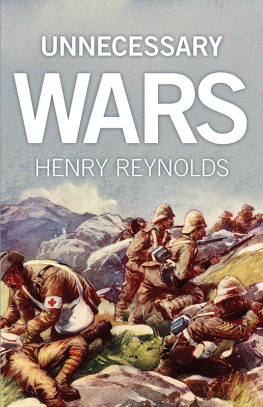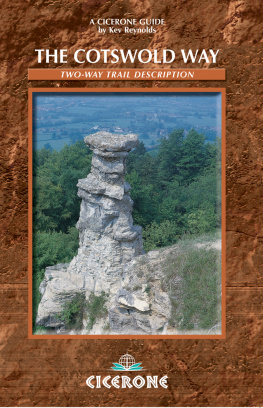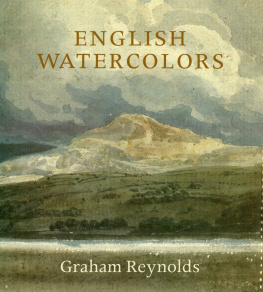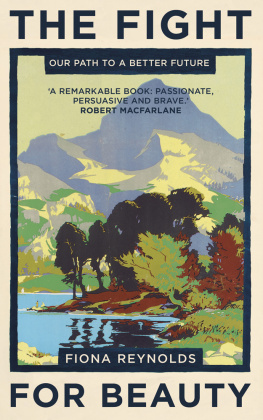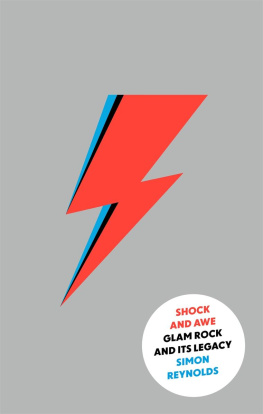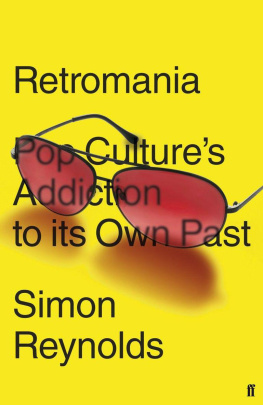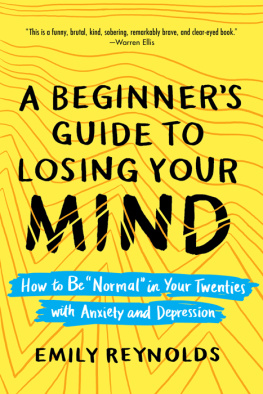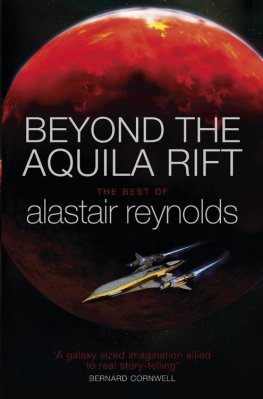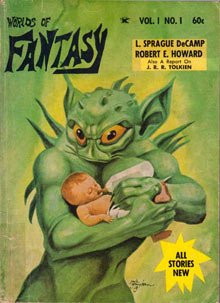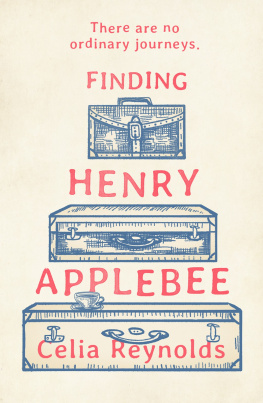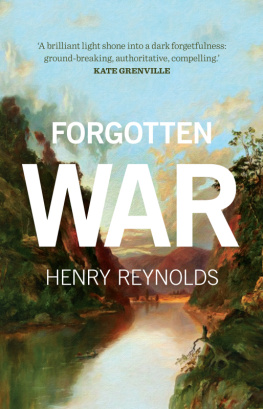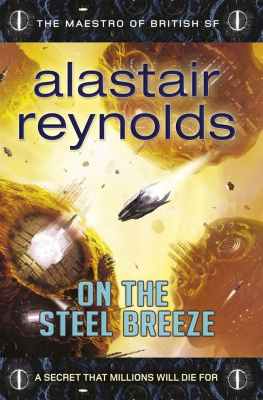Reynolds - Unnecessary Wars
Here you can read online Reynolds - Unnecessary Wars full text of the book (entire story) in english for free. Download pdf and epub, get meaning, cover and reviews about this ebook. City: Sydney;N.S.W, year: 2016, publisher: NewSouth Publishing, genre: Politics. Description of the work, (preface) as well as reviews are available. Best literature library LitArk.com created for fans of good reading and offers a wide selection of genres:
Romance novel
Science fiction
Adventure
Detective
Science
History
Home and family
Prose
Art
Politics
Computer
Non-fiction
Religion
Business
Children
Humor
Choose a favorite category and find really read worthwhile books. Enjoy immersion in the world of imagination, feel the emotions of the characters or learn something new for yourself, make an fascinating discovery.
Unnecessary Wars: summary, description and annotation
We offer to read an annotation, description, summary or preface (depends on what the author of the book "Unnecessary Wars" wrote himself). If you haven't found the necessary information about the book — write in the comments, we will try to find it.
Unnecessary Wars — read online for free the complete book (whole text) full work
Below is the text of the book, divided by pages. System saving the place of the last page read, allows you to conveniently read the book "Unnecessary Wars" online for free, without having to search again every time where you left off. Put a bookmark, and you can go to the page where you finished reading at any time.
Font size:
Interval:
Bookmark:
UNNECESSARY
WARS
HENRY REYNOLDS is one of Australias best-known historians. His pioneering scholarly work has included The Other Side of the Frontier (1981), The Law of the Land (1987), This Whispering in Our Hearts (1998) and Why Werent We Told? (1999). His most recent book, Forgotten War, won the Victorian Premiers Literary Award for Non-fiction in 2014.
UNNECESSARY
WARS
HENRY REYNOLDS

A NewSouth book
Published by
NewSouth Publishing
University of New South Wales Press Ltd
University of New South Wales
Sydney NSW 2052
AUSTRALIA
newsouthpublishing.com
Henry Reynolds 2016
First published 2016
10 9 8 7 6 5 4 3 2 1
This book is copyright. Apart from any fair dealing for the purpose of private study, research, criticism or review, as permitted under the Copyright Act, no part of this book may be reproduced by any process without written permission. Inquiries should be addressed to the publisher.
National Library of Australia Cataloguing-in-Publication entry
Creator: Reynolds, Henry, 1938 author.
Title: Unnecessary wars / Henry Reynolds.
ISBN:9781742234809 (paperback)
9781742242279 (ebook)
9781742247649 (ePDF)
Subjects:South African War, 18991902 Social aspects.
War and society Australia.
Militarization Australia.
Dewey Number: 303.660994
Design Josephine Pajor-Markus
Cover design Xou Creative
Cover image Vintage colour lithograph of the Second Boer War, South Africa, 1900. iStock.com/unknown artist.
Printer Griffin
Excerpt from Waking Early Sunday Morning from Collected Poems by Robert Lowell. Copyright 2003 by Harriet Lowell and Sheridan Lowell. Reprinted by permission of Farrar, Straus and Giroux, LLC.
All reasonable efforts were taken to obtain permission to use copyright material reproduced in this book, but in some cases copyright could not be traced. The author welcomes information in this regard.
This book is printed on paper using fibre supplied from plantation or sustainably managed forests.

And yet I doubt if there be a more reprehensible human act than to lead a nation into an unnecessary war
Richard Cobden to John Bright, 8 August 1855

Whoever knows what war really is, whoever will reflect upon its terrible effects and disastrous consequences, will readily agree that it should not be undertaken without the most urgent reasons for doing so. Humanity revolts against a sovereign who, without necessity or without pressing reasons, wastes the blood of his most faithful subjects and exposes his people to the calamities of war, when he could have kept them in the enjoyment of an honorable and salutary peace. When to this inconsiderateness, this want of love for his people, he adds the injustice towards those whom he attacks, of what crime, or rather of what dreadful series of crimes, does he not render himself guilty? Answerable for all the evils which he inflicts upon his subjects, he is responsible also for all those which he inflicts upon an innocent people the bloodshed, the pillaging of towns, the ruin of provinces such are his crimes. Not a man is killed nor a hut burned but he is responsible before God and answerable to humanity for them.
Emmerich de Vattel, The Law of Nations, 1758
Introduction
W hy write another book about war? And why focus on the Boer War in particular? They are fair questions. The number of war books has increased dramatically over the last few years. Do we need any more? Obviously I decided that we do, but I did not seek to emulate the many studies of tactics and battles, soldiers and their commanders. Australia has numerous good professional military historians and an even greater number of enthusiastic amateurs. They have explored most of the countrys campaigns and examined the careers of many distinguished soldiers.
I am not a military historian in the conventional sense of that term. I make no attempt to match those writers who chronicle battles and campaigns. I cannot compete with competent specialisation. Rather, my concern is with Why are we more obsessed with war than is New Zealand, for instance? And it is not just a response to the centenary of Anzac and the Western Front. The cavalcade of commemoration has been on the road for twenty years. For someone of my generation, watching it pass by has been an unexpected experience, and I wonder why that is so. Consideration of the question carries me back to my childhood. I have no recollection of the rhetorical flourishes common today. I suppose we must have had Anzac Day ceremonies at school but I remember very little about them, which suggest to me that the students as a whole had no particular interest in the proceedings. And I wonder if the teachers themselves were all that engaged in the process. I dont remember anyone inspiring us with the famous story of the dawn assault at Gallipoli.
When as a young adult I came to study and then to teach Australian history, the overseas war was well down my list of important topics. I took my cue from that generation of historians who, in the middle years of the 20th century, pioneered both the teaching and the writing of our national story. They were men and women who had lived through the Second World War. Many of them had served in one way or another, and to do so had put their careers on hold. The whole emphasis of the histories they wrote was on nation-building and on political and social development. They focused on domestic achievements, not on overseas military adventures. Australia was homemade by men and women who built and nurtured, who saved and taught. It was as if the actual experience of conflict had provided them with a protective shield against the excesses of military bravado.
One event in particular roused both my interest and concern about the current apotheosis of the soldier. In May 2013, I attended a public ceremony in Hobart on the edge of the large area of bushland on a hill known as the Queens Domain. It was a commemoration of Tasmanias involvement in the Boer War and was attended by an array of official representatives mayors of local municipalities, state politicians or their representatives, a municipal band, and a party of horsemen dressed in the uniforms similar to those worn out on the veldt in the first months of the 20th century. I was surprised that after all this time Tasmanians were coming together to remember an almost forgotten war. The monument that was the focal point for the ceremony had a soldier standing on a plinth looking down on the city. It had been there since a few years after the war. In all the innumerable times I had walked or driven past it, I had never seen anyone bothering to pay tribute or show any interest in his lonely vigil. My father was a devoted historian who had an expansive curiosity about Tasmanian history and would constantly talk about past events and significant localities. He never once bothered to explain to me who the lonely soldier was or why he was there, although he would have known. It just did not seem to be important. And that was a common attitude. Why the renewed interest, I wondered, after a hundred years of neglect?
But as I thought about the ceremony I had seen, I concluded that the Boer War should be remembered, though not in the way I had witnessed. Commemoration of the service and sacrifice of the individual soldiers hinders rather than assists our attempt to understand the war itself. It deflects attention away from questions that still matter. And if that is true of the Boer War it is likely to be true about later conflicts. But the war in South Africa involved all six individual Australian colonies. For each one, apart from New South Wales, it was their first war. It was also an unnecessary one. And the new federal government inherited a role in the conflict in 1901 without any doubt or regret, and was involved in it for the first seventeen months of its existence.
Next pageFont size:
Interval:
Bookmark:
Similar books «Unnecessary Wars»
Look at similar books to Unnecessary Wars. We have selected literature similar in name and meaning in the hope of providing readers with more options to find new, interesting, not yet read works.
Discussion, reviews of the book Unnecessary Wars and just readers' own opinions. Leave your comments, write what you think about the work, its meaning or the main characters. Specify what exactly you liked and what you didn't like, and why you think so.

